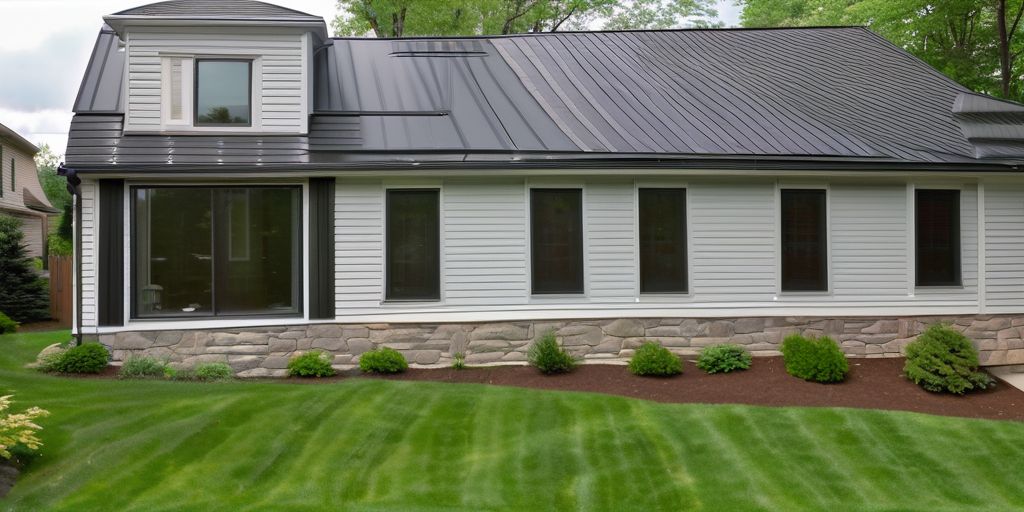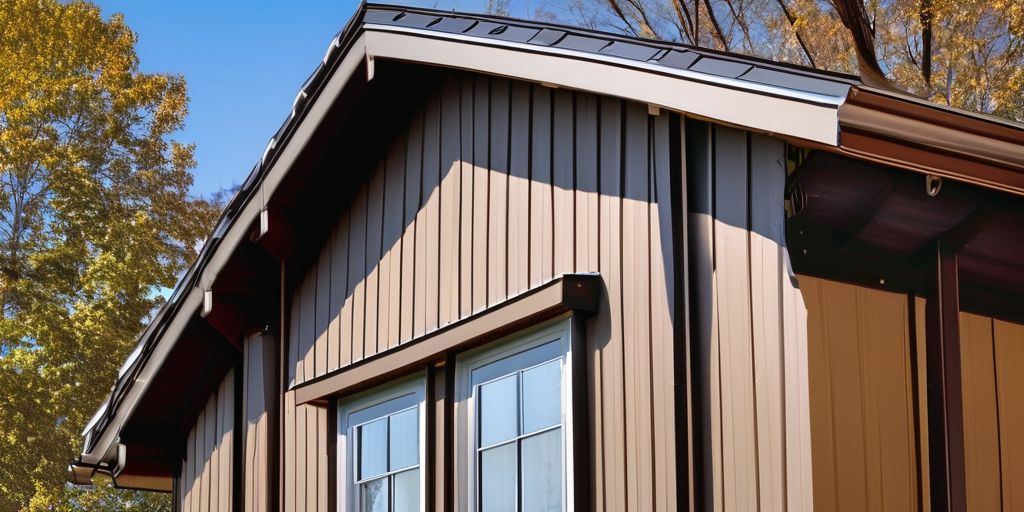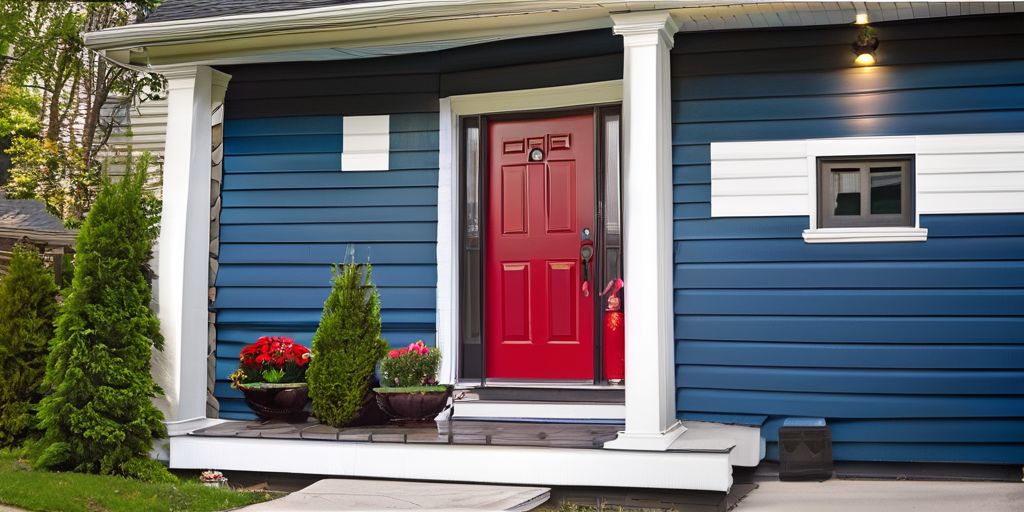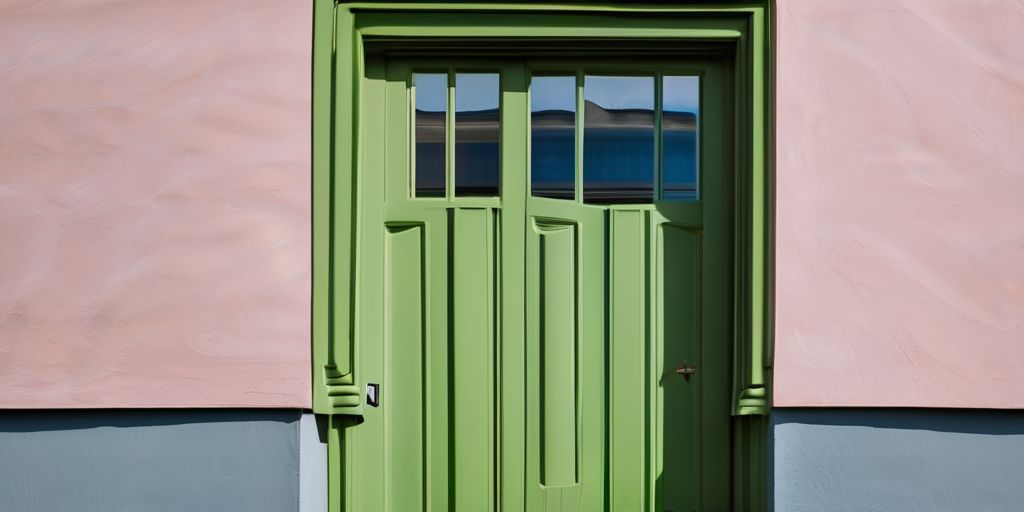Incorporating insulating coatings for aluminum siding in Burlington is a crucial step towards sustainable living and energy efficiency. By choosing the right coating solutions and integrating nature with structures, homeowners can enjoy a range of benefits. Let’s explore the key takeaways from embracing insulating coatings for aluminum siding in Burlington:
Key Takeaways
- Embracing insulating coatings for aluminum siding promotes sustainable living and energy conservation.
- Integrating nature with structures creates a harmonious and eco-friendly living environment.
- Choosing the right coating solution ensures regulatory compliance and trust from clients.
- Insulating coatings offer thermal insulation, energy cost savings, and moisture control benefits.
- Incorporating insulating coatings is a step towards a more efficient and sustainable construction industry.
Embracing Sustainable Living Through Insulating Coatings
Benefits of Insulating Coatings
Incorporating insulating coatings on aluminum siding offers a multitude of benefits that align with the principles of sustainable living. Energy efficiency is at the forefront, as these coatings are designed to reduce the thermal exchange between the interior and exterior of a building. This means that less energy is required to maintain comfortable indoor temperatures, leading to lower utility bills and a reduced carbon footprint.
Insulation is a key factor in achieving a comfortable living environment. By minimizing heat loss in the winter and heat gain in the summer, insulating coatings contribute to a consistent indoor climate. This not only enhances the comfort of occupants but also extends the lifespan of HVAC systems by reducing the strain on these units.
- Consistent Indoor Climate: Ensures a stable temperature throughout the year.
- Reduced Energy Consumption: Lowers the need for heating and cooling.
- Cost Savings: Decreases energy bills over time.
- Environmental Impact: Lessens the reliance on fossil fuels.
By focusing on energy conservation and comfort, insulating coatings for aluminum siding represent a smart investment for homeowners. They embody the essence of a sustainable upgrade, providing both immediate and long-term advantages.
While the benefits are clear, it’s important to choose the right insulating coating for your specific needs. Factors such as climate, the orientation of your home, and local weather patterns all play a role in determining the most effective solution. For residents of Burlington, this might mean considering the local climate’s demands, potentially taking inspiration from the robust nature of the nearby Niagara Escarpment.
Integration of Nature and Structures
Incorporating insulating coatings into aluminum siding is not just about energy efficiency; it’s also about creating a seamless integration between the built environment and the natural world. Softening harsh lines with strategic landscaping can transform the aesthetic of a building, making it blend more naturally with its surroundings.
- Softening Harsh Lines: Utilize landscaping to create a harmonious blend of nature and modern design.
- Creating Focal Points: Employ natural elements like plants or water features to draw attention and create visual interest.
- Privacy and Screening: Combine insulating coatings with greenery to enhance privacy and the beauty of outdoor spaces.
- Sustainability: Opt for green roof concepts to merge ecological benefits with functional uses, providing insulation and contributing to urban biodiversity.
When considering the integration of nature with aluminum siding, it’s essential to think about the long-term impact on the environment and the community.
In Burlington, the incorporation of nature into architecture can be seen in the thoughtful design of spaces like the Royal Botanical Gardens, where the interplay of flora and modern structures is a testament to sustainable living. By choosing the right insulating coatings, one can ensure that buildings not only conserve energy but also contribute positively to the local ecosystem.
Choosing the Right Coating Solution
When selecting an insulating coating for aluminum siding, it’s crucial to consider several factors to ensure optimal performance and sustainability. Here’s a guide to help you make an informed decision:
- Assess the local climate: Aluminum siding is exposed to various weather conditions. In areas like Burlington, where temperatures can vary significantly, choose a coating that can withstand extreme weather without degrading.
- Durability: A coating should offer long-lasting protection. Look for options that resist fading, chipping, and peeling over time.
- Environmental impact: Opt for coatings with low volatile organic compounds (VOCs) to minimize environmental harm.
- Aesthetics: The coating should enhance the appearance of your siding, maintaining or improving its original sheen.
Remember, the right coating not only protects your siding but also contributes to the overall energy efficiency of your home.
Finally, while DIY application is possible, it’s important to follow safety precautions and use gentle cleaning methods to maintain the integrity of the coating. Regular maintenance can extend the lifespan of your siding, ensuring it continues to protect and insulate your home effectively.
Discover the transformative power of insulating coatings and join the movement towards sustainable living. Our innovative solutions not only enhance your home’s energy efficiency but also contribute to a healthier planet. Ready to make a change? Visit our website to explore our range of services, including aluminum siding painting, vinyl siding painting, and more. Take the first step towards a greener future and [book your free estimate](#) today!
Conclusion
Incorporating insulating coatings for aluminum siding in Burlington is a smart choice for homeowners looking to enhance energy efficiency and reduce environmental impact. By choosing high-quality products and adhering to stringent construction codes, builders and contractors can create sustainable structures that stand the test of time. Embrace the future of residential constructions by integrating insulating coatings, and take a step towards a more sustainable and eco-friendly living environment in Burlington.
Frequently Asked Questions
What are the benefits of incorporating insulating coatings for aluminum siding?
Incorporating insulating coatings for aluminum siding can improve energy efficiency, reduce heat loss, enhance the durability of the siding, and contribute to overall cost savings on energy bills.
How do insulating coatings integrate nature and structures in residential constructions?
Insulating coatings help maintain a comfortable indoor temperature, reducing the reliance on artificial heating or cooling systems and promoting a more sustainable living environment that aligns with nature.
What factors should be considered when choosing the right coating solution for aluminum siding?
When selecting a coating solution for aluminum siding, factors such as weather resistance, thermal performance, durability, and environmental impact should be taken into account to ensure long-lasting and effective insulation.
Can insulating coatings for aluminum siding be customized to suit different architectural styles?
Yes, insulating coatings for aluminum siding can be customized in terms of color, texture, and finish to complement various architectural styles and design preferences.
Do insulating coatings for aluminum siding require special maintenance or care?
Insulating coatings for aluminum siding typically require minimal maintenance and care, with occasional cleaning to preserve their effectiveness and appearance over time.
Are insulating coatings for aluminum siding environmentally friendly?
Many insulating coatings for aluminum siding are designed to be environmentally friendly, using sustainable materials and manufacturing processes to reduce their carbon footprint and promote eco-friendly construction practices.






